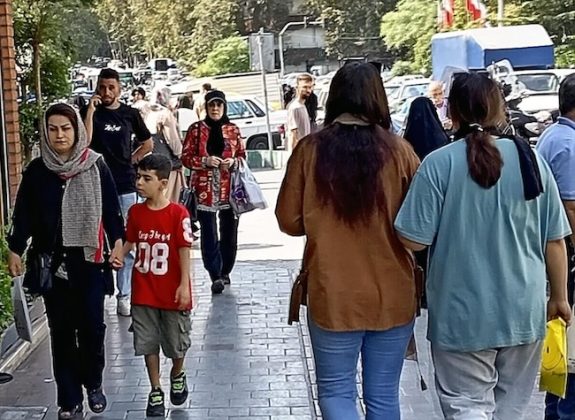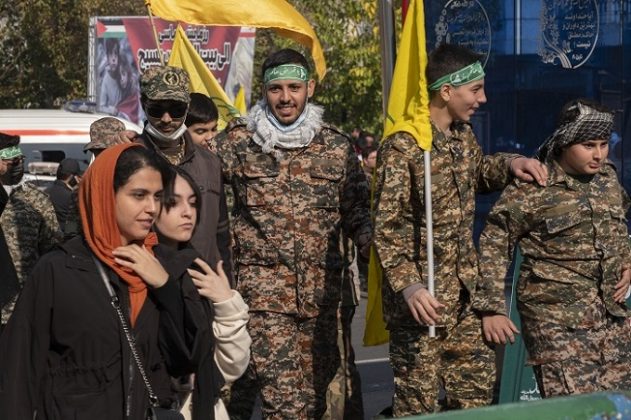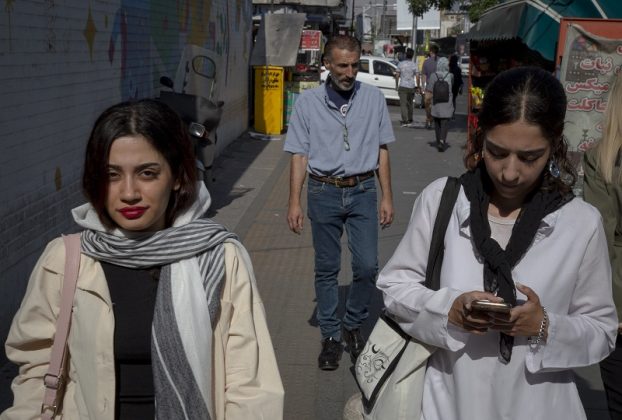
Iran’s government has been prevented by its own National Security Council from passing the Hijab and Chastity Law, a draconian new package of legislation which would further criminalize women and girls for failing to follow the regime’s strict dress code.
The postponement follows a Dec. 14 letter from the council to Iran’s parliament requesting a stay to amend the bill.
The council, which is overseen by Iran’s president, is responsible for several areas of government such as the country’s national security policies, and the alignment of domestic policies with the national security strategy.
The legislation and its 74 articles were termed a form of “gender-based persecution” by United Nations experts in a Dec. 13 statement published by the UN Human Rights Council.
“The new hijab law marks an intensification of state control over women’s bodies in Iran and is a further assault on women’s rights and freedoms,” the UN experts said.“We call upon the Government of Iran to immediately repeal the Hijab and Chastity Law and all other discriminatory legislation that perpetuates gender-based persecution.”
EXCLUSIVE: New UN Rapporteur on Iran to Focus on Gender Inequality, Executions
The UN experts who produced the statement included: Mai Sato, the Special Rapporteur on the situation of Human Rights in the Islamic Republic of Iran; Nazila Ghanea, the Special Rapporteur on freedom of religion or belief; and Reem Alsalem, the Special Rapporteur on violence against women and girls.
The legislation, which builds on existing compulsory dress codes and was due to come into force on Dec. 13, would introduce harsher punishments and penalties for women and girls who fail to cover their hair, arms and lower legs, and confer even broader powers on a range of government entities including intelligence agencies to enforce the law. Transport companies, government staff and teachers would be required to enforce the legislation.

Punishments such as flogging, hefty fines and harsh prison sentences are set out in the bill. The bill also introduces restrictions on education and employment for women and girls who defy the forced hijab laws.
Under the legislation, women can be charged with prostitution or the promotion of prostitution if they refuse to wear the veil, or advocate for a woman’s right to dress in ways which are not compatible with the law. This offense carries a minimum one-year prison sentence, and a maximum sentence of 10 years in jail. Several hijab-related offenses contained in the bill carry the death penalty.
The scope of the bill has been widened to introduce greater gender segregation on public transport and in universities, government offices, parks, and health care settings including hospitals. It also punishes businesses who provide services to women found to be in breach of the dress code through the use of fines, penalties and business closures.
The bill requires government entities tasked with enforcing and monitoring the law to produce reports which evaluate their compliance three months after the law comes into effect.
Broadcasters, radio stations and film production companies are required to “promote family-oriented Islamic lifestyle symbols and models,” and for their content to place “an emphasis on children and teenagers, to avoid the promotion of unhealthy relationships and anti-family patterns in the production and broadcast programs and advertisements of radio and television.”
The law also allows the police to approve the “training and employment of reliable forces and the use of agents,” and includes a note on the kinds of individuals who can be hired. The criteria requires these individuals to be married, have no “bad” criminal record, and to adhere to the constitution of the Islamic Republic.
It is not clear from the legislation whether these forces or agents could be brought in from foreign countries. However, Iran’s government has previously used forces from abroad to stop political dissent inside the country in recent years.
Militia fighters from Iraq, Lebanon and Syria were hired by the government to quell the 2022 protests in Iran, following the death of 22-year-old Mahsa Amini while in police custody. Amini died of injuries she sustained while in detention for violating the mandatory hijab law. Amini’s death ignited the ‘Woman, Life, Freedom’ gender equality movement and the nationwide anti-government protests that followed. The brutal crackdown on protestors by security forces which followed led to over 20,000 detentions and the deaths of more than 500 people, including at least 60 children.
The decision to stall the bill is viewed by some experts as an attempt by Iran’s theocracy to avoid more protests. Iran’s lawmakers are “clearly fearful of the societal reaction to this oppressive law” the Center for Human Rights in Iran said in a Dec. 13 statement.
The legal requirement for women and girls to wear the hijab in Iran was implemented following the 1979 revolution and Ayatollah Ruhollah Khomeini’s edict that women would have to wear the hijab in public spaces. The mandate led to thousands of women marching on the streets in Iran in March 1979 calling for the law to be repealed. Women in Iran have continued to protest against forced hijab laws at great personal risk to their safety and wellbeing.


















